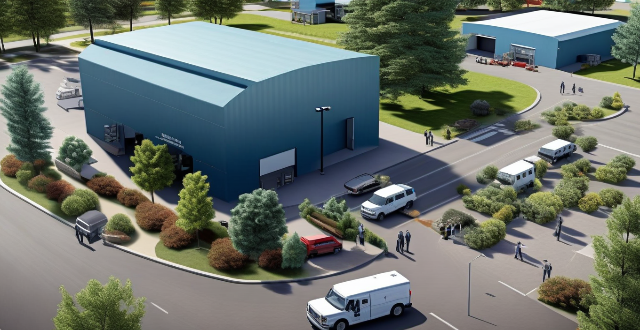Climate change, energy consumption, and transportation policies are interconnected in complex ways. Reducing energy consumption is critical for mitigating climate change, and transportation policies that promote energy efficiency and alternative fuels can have a significant impact on reducing energy consumption. Additionally, investing in sustainable transportation infrastructure can further reduce greenhouse gas emissions by providing more sustainable options for people to get around.

The Relationship between Climate Change, Energy Consumption, and Transportation Policies
Introduction
Climate change, energy consumption, and transportation policies are interconnected in complex ways. This article will explore the relationships between these three areas and their impact on each other.
Climate Change and Energy Consumption
Climate change is largely driven by greenhouse gas emissions, which are primarily produced by burning fossil fuels for energy. The majority of global energy consumption comes from the burning of coal, oil, and natural gas. As a result, reducing energy consumption and transitioning to cleaner sources of energy are critical steps in mitigating climate change.
Key Point: Reducing Energy Consumption
Reducing energy consumption can be achieved through various means, including improving energy efficiency in buildings, industries, and transportation systems. By using less energy, we can reduce our reliance on fossil fuels and lower our carbon footprint.
Transportation Policies and Energy Consumption
Transportation is one of the largest contributors to energy consumption and greenhouse gas emissions. Cars, trucks, trains, planes, and ships all require energy to operate, typically derived from burning fossil fuels. Therefore, transportation policies that promote energy efficiency and alternative fuels can have a significant impact on reducing energy consumption and mitigating climate change.
Key Point: Promoting Energy Efficiency in Transportation
Promoting energy efficiency in transportation can involve implementing policies such as:
- Encouraging public transportation use
- Improving fuel efficiency standards for vehicles
- Incentivizing the adoption of electric cars and buses
- Building infrastructure for alternative modes of transportation like biking or walking
Transportation Policies and Climate Change Mitigation
Transportation policies can also play a crucial role in mitigating climate change by reducing greenhouse gas emissions. For example, policies that encourage the use of electric vehicles or public transportation can help reduce emissions from transportation sources. Additionally, investing in infrastructure for alternative modes of transportation like biking or walking can further reduce emissions by providing more sustainable options for people to get around.
Key Point: Investing in Sustainable Transportation Infrastructure
Investing in sustainable transportation infrastructure involves building out bike lanes, pedestrian paths, and public transit systems that make it easier for people to choose more sustainable modes of transportation. By providing these options, individuals are more likely to choose them over driving alone in a car, which can help reduce overall greenhouse gas emissions from transportation sources.